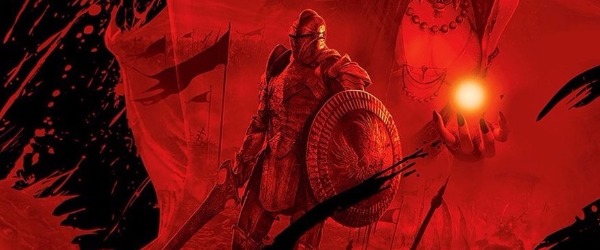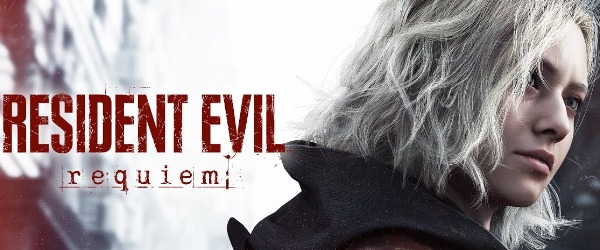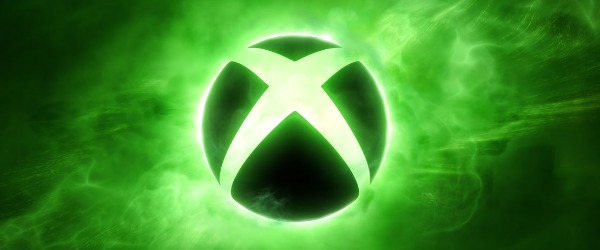
Greatest Video Game Composers: Koichi Sugiyama - Article
by Taneli Palola , posted on 01 June 2016 / 9,546 ViewsIn honor of the recent 30th anniversary of the Dragon Quest series, in this latest article in our Greatest Video Game Composers series we're going to talk about Koichi Sugiyama; one of the most influential video game composers of all time. His work has had an impact on countless other composers over the years, and in many ways his soundtracks have come to set the template for RPG video game music. He also has the distinction of being the first video game composer whose music was played live in concert. Without further ado let's take a look at the career of Koichi Sugiyama.
Koichi Sugiyama actually began his career as a professional composer in 1967, which was nearly 20 years before he composed his first video game soundtrack. Sugiyama is a classically trained composer, although he worked as a TV director and producer before he began his career as a composer. From the late 60s until the early 80s Sugiyama penned a number of hugely popular songs for some of the period's most popular Japanese artists. In addition, he also wrote music for over 2,000 commercials.
His popularity and talent also led to him being asked to compose numerous theme songs and soundtracks for several anime series and films. These included the likes of Cyborg 009 and The Sea Prince and the Fire Child. His career would take a fateful turn in 1985 when Sugiyama, after playing a game called Kazuro Morita's Shogi, wrote a letter to Enix, commending them on the quality of the game.
The developers were quite shocked at being contacted in this manner by a celebrity of Sugiyama's stature, and one who was clearly quite knowledgeable about video games too. Enix eventually asked Sugiyama if he would be interested in composing music for its video games. This quickly led to Sugiyama's very first video game soundtrack, which was for a 1985 release called World Golf.
Afterwards, Sugiyama began focusing more and more on video game music, leaving his anime and pop music careers behind. The next game he worked on was another little known title called Wingman 2, which came out in 1986. It was less than a month later that a little game called Dragon Quest was released and kicked off one of the most successful and revolutionary series in video game history.
Sugiyama's classically influenced score for Dragon Quest was considered groundbreaking for the time. There hadn't been anything quite like it before, and it set the template which countless other RPGs have since followed. Additionally, all eight songs featured in the soundtrack would become series staples that were re-arranged in subsequent entries.
Following the success of the game Sugiyama almost immediately began composing the soundtrack to the sequel, Dragon Quest II: Luminaries of the Legendary Line, which released in 1987.
After the launch of Dragon Quest II, Sugiyama held the first ever video game music concert in history, playing music from the first two Dragon Quest games. The Family Classic Concert was arranged and conducted by Sugiyama himself, with the Tokyo String Ensemble performing the music. The concert was very well received and Sugiyama has since gone on to hold 18 of them across Japan.
He also created the soundtracks to numerous other games that same year. Although none of them made any significant lasting impact upon release, the soundtracks were generally of very high quality. Perhaps the most notable of these titles was an adventure game made for Japanese home computers called Jesus: Kyōfu no Bio Monster, later known simply as Jesus.
In 1988 he composed music for just one game - Dragon Quest III: The Seeds of Salvation. It is often considered an improvement on the two previous games in the series and its success actually prompted Enix to hold off future Dragon Quest releases until the weekends so as to not encourage people to skip school or work.
The following year was fairly uneventful, with Sugiyama composing the music for two relatively unknown games - Angelus: The Gospel on Evil and Star Command: Kurayami no Shinryakusha. That same year he also created the score for Godzilla vs. Biollante, the 17th film in the Godzilla franchise.
The new decade began with a familiar series for Sugiyama, as Dragon Quest IV: Chapters of the Chosen was released in February of 1990. This was followed over the course of the next two years by a handful of smaller, largely unremarkable games like Backgammon, World Golf III and Jesus 2 (yes, they made a sequel).
Sugiyama's next notable works were the soundtracks for Dragon Quest V: Hand of the Heavenly Bride, which was the first game in the series to be released on the Super Famicom, and E.V.O: Search For Eden. Incidentally, as a result of poor sales of the previous three entries in the series in North America, Dragon Quest V was the first game in the series that was not initially released outside of Japan. It wouldn't be until 2009 that western fans would get their hands on localised versions of the game.
Dragon Quest V: Hand of the Heavenly Bride was nonetheless a highly influential game at the time, introducing new gameplay concepts such as monster collecting to video games. It was also quite possibly the first video game where a playable character could become pregnant, if the player so wished.
1993 would be another unremarkable year for Sugiyama. He was only involved with a video game version of Monopoly and the first game in the Mystery Dungeon series, called Torneko no Daibōken: Fushigi no Dungeon. The latter was only ever released in Japan.
Sugiyama's next works came in 1995 when he composed the music for Mystery Dungeon: Shiren the Wanderer and Dragon Quest VI: Realms of Revelation. As with previous games in the series DQ VI wasn't released outside of Japan until it was remade on the Nintendo DS 15 years later. It would also end up being the last new game in the series for five years.
By this point Sugiyama was practically focused solely on crafting music for the Dragon Quest series and accordingly his output dropped. Between 1996 and 1999 he only composed two new sountracks, the first for Dragon Quest Monsters on the Game Boy in 1998, and the second for Tornerko: The Last Hope on the PlayStation in 1999.
After an extended hiatus, Dragon Quest would finally see the release of its 7th main installment in 2000. Sugiyama was once again responsible for the game's score. Despite the five year gap between releases the game quickly became the best-selling PlayStation game of all time in Japan; a testament to just how incredibly popular the series was in its native country.
Sugiyama also composed music for one other game that same year - Shiren the Wanderer 2 - but the following year would mark the last time that he would compose music for a game that wasn't in any way related to Dragon Quest when he composed the score to Derby Stallion 64.
For the next two years he worked on a number of spin-off titles for the Dragon Quest series, including such titles as Dragon Quest Characters: Torneko no Daibōken 3 and Dragon Quest Monsters: Caravan Heart. None of the games that launched during this time period were released outside of Japan, but that didn't stop Sugiyama from composing some very memorable and widely acclaimed pieces of music.
In 2004 Sugiyama composed the music for Dragon Quest VIII: Journey of the Cursed King. This was the entry in the series that introduced most western gamers to Sugiyama's music; it quickly became and remains the best-selling Dragon Quest game outside of Japan and is often considered one of the best PlayStation 2 games of all time. It is also my personal favourite out of all of Sugiyama's soundtracks.
The improved technical capabilities of the PS2 allowed Sugiyama to fully embrace his classical tendencies in composing the music for the game. Journey of the Cursed King's music was conducted by Sugiyama himself and performed by the Tokyo Metropolitan Symphony Orchestra, with which Sugiyama would go on to perform a series of concerts that featured the music from DQ VIII in 2005.
Sugiyama once again spent the next several years composing music for a variety of Dragon Quest side games, including Dragon Quest Heroes: Rocket Slime in 2005 and Dragon Quest Monsters: Joker in 2006. After that it would be another two and a half years before he would return to compose new music for a video game.
Upon his return he produced the music to Dragon Quest Wars, a turn-based strategy game for the Nintendo DSi. There was also a certain other game with Sugiyama's music that attracted much more attention around the same time - Dragon Quest IX: Sentinels of the Starry Skies for the Nintendo DS.
As was the case with DQ VIII, Sentinels of the Starry Skies was also developed by Level-5. It would eventually become the best-selling game in the series, approaching almost 6 million units shipped worldwide. Sugiyama once again provided an excellent score for the game, managing to create a soundtrack that was at the same time familiar and fresh. It also featured some of the absolute best pieces of music Sugiyama has ever created.
Over the next several years Sugiyama kept composing music for a variety of Dragon Quest titles, most notably Dragon Quest Monsters: Joker 2 in 2010 and Dragon Quest X in 2012. The latter was a notable departure from past entries in the series as it was an MMORPG. Additionally, it was the first game in the series since Dragon Quest VI that was not released outside of Japan. Sugiyama also composed the soundtracks to all of the expansions for DQ X.
Sugiyama's next high profile work was the soundtrack for Dragon Quest Heroes: The World Tree's Woe and the Blight Below, which released in early 2015 for the PS3 and PS4 and later that same year on PC. The game was made by the people behind the Dynasty Warriors series and featured a similar style of gameplay, but naturally using characters from various Dragon Quest games.
Sugiyama is now 85 years old, but his age hasn't affected his workrate at all and he continues to constantly create new music. This year alone he composed music for three new games - Dragon Quest: Builders, Dragon Quest Monsters: Joker 3, and Dragon Quest Heroes 2. If that wasn't enough there is still one more game to come in 2016 that Sugiyama has composed the soundtrack for.
That one game is, of course, Dragon Quest XI for the PlayStation 4 and Nintendo 3DS, which is set for release sometime in late 2016. So, despite his age, it seems safe to assume that Sugiyama will keep creating the music for as many Dragon Quest games as possible for as long as possible, refining the series' signature sound with each new entry. Unfortunately, no music for Dragon Quest XI has been released just yet, outside of the music accompanying the game's trailers, so we'll probably have to wait until the full release to see what Sugiyama has come up with this time.
Koichi Sugiyama may not be as well-known as some other video game composers, like Koji Kondo or Nobuo Uematsu, but his impact on video game music and the industry in general cannot be understated. His work has influenced countless other composers over the years, he is responsible for the first ever video game music concert, and he set the template for RPG soundtracks with his music for the first Dragon Quest, a series he has rightly become synonymous with.
Very few others can claim to have had such a great impact on video game music as him, and what makes this even more impressive is that he has practically composed the music to a single prolific video game series for the last 31 years, to the point that most of his other work has been largely forgotten. Not because his other music isn't good, but because his work on the Dragon Quest series has simply outshone everything else.
Many of you probably have your favourites among Sugiyama's sountracks and songs, so feel free to share them below. As always, thanks for reading.
More Articles
Great article!
To me, he is the greatest video game composer ever. Love his work on the DQ series <3
It's about time! Probably the greatest game composer of all time imo.
I almost feel bad that I recognized his name as the composer of Godzilla vs Biollante, not from his video game works... XD
DQ 8 is the only DQ with an orchestrated soudtrack? Damn...
Dragon Quest X had one too on Wii U.






















 Essay Pro
Essay Pro